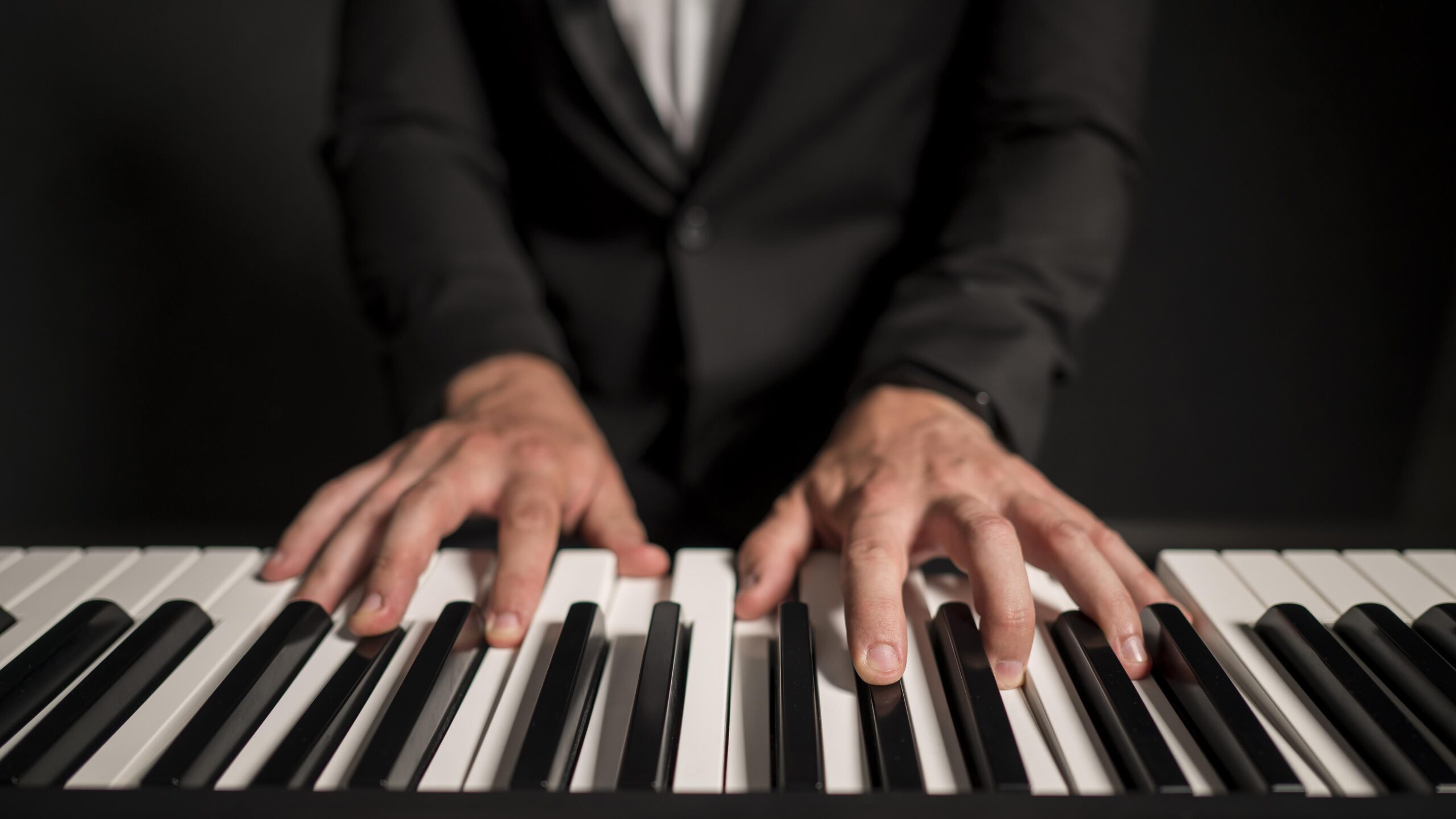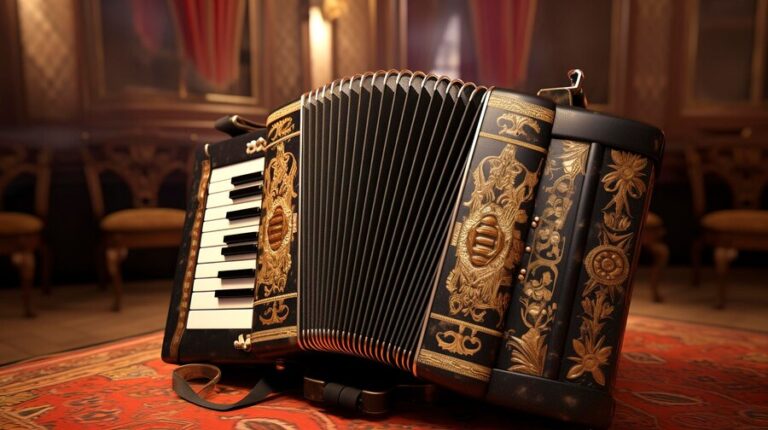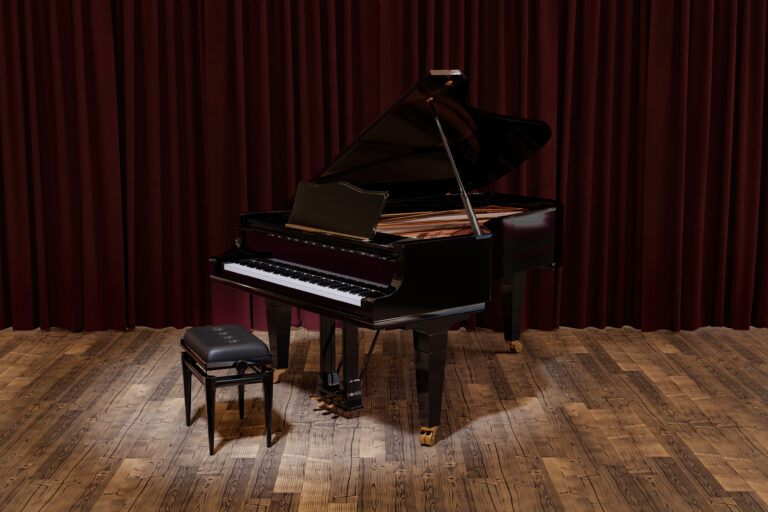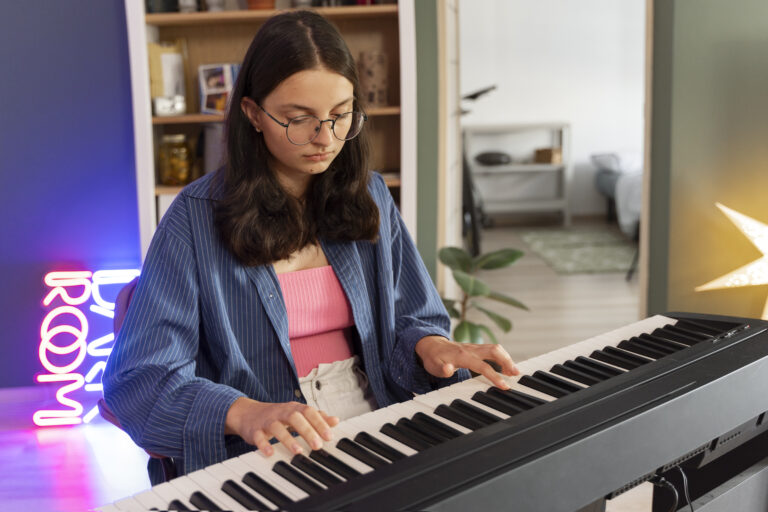The Piano Effect: Does Playing the Piano Really Lengthen Your Fingers?
Have you ever heard the claim that playing the piano can make your fingers longer? As a pianist with some years of experience, I’ve heard this statement many times, and I’m here to set the record straight. While playing the piano can undoubtedly have many benefits, including improved hand-eye coordination and agility, the idea that it can make your fingers longer is a bit more complicated.
To understand this claim, it’s important to know what determines the length of your fingers. As it turns out, finger length is primarily determined by genetics, and there is little that can be done to change it. While playing the piano may help to improve the flexibility and strength of your fingers, it is unlikely to have a significant impact on their length.
But don’t worry – there are still techniques and exercises that can help improve your fingers’ appearance, making them appear longer and more slender. In the following paragraphs, we’ll explore some of these techniques and discuss how they can be incorporated into your piano practice to help you achieve the best possible results. So, whether you’re a seasoned pianist or just starting out, let’s dive into the world of piano and fingers and discover the truth behind this fascinating claim.
Understanding Finger Length and Genetics
When it comes to finger length, genetics plays a significant role. The length of your fingers is determined by the genes you inherit from your parents. It is not something that can be changed by playing the piano or any other activity.
There are two types of finger length patterns: the first is where the index finger is longer than the ring finger, and the second is where the ring finger is longer than the index finger. The second pattern is more common in men, while the first is more common in women.
The length of your fingers is determined by the amount of testosterone you were exposed to in the womb. The more testosterone you are exposed to, the longer your ring finger is likely to be. This is why men tend to have longer ring fingers than women.
While playing the piano can improve the dexterity and strength of your fingers, it does not make them longer. However, playing the piano can help you improve your finger position and control, which can make your fingers appear longer and more graceful.
It’s a common misconception that playing the piano can make your fingers longer, but the truth is that finger length is determined by genetics and cannot be changed by any activity. However, that doesn’t mean that playing the piano doesn’t offer its own benefits. By improving your finger dexterity and control, you can become a more skilled and precise player, regardless of the length of your fingers. So, embrace your unique physical traits and let your passion for music guide you on your piano journey.
The Piano and Finger Development
Playing the piano can have a positive impact on your finger development. As you practice playing the piano, you are using the muscles in your fingers and hands, which can help to strengthen and tone them over time. This can result in more dexterity and control over your fingers, which can be useful in many other areas of your life.
While playing the piano may not actually make your fingers longer, it can help to improve their flexibility and range of motion. This is because the movements required to play the piano involve a wide range of finger motions, from simple tapping to complex chords and arpeggios. Over time, these movements can help to stretch and strengthen the muscles in your fingers, making them more limber and responsive.
In addition to physical benefits, playing the piano can also have mental benefits. Studies have shown that playing music can help to reduce stress and anxiety, improve memory and cognitive function, and even boost creativity. These benefits can be especially important for people who are looking to improve their overall well-being and quality of life.
Overall, while playing the piano may not make your fingers longer, it can have a positive impact on your finger development and overall health and well-being. Whether you are a beginner or an experienced player, taking the time to practice regularly and develop your skills can be a rewarding and fulfilling experience.
Mechanics of Piano Playing
When you play the piano, your fingers move in a coordinated and precise manner. The mechanics of piano playing involve the use of your fingers, hands, wrists, and arms to produce the desired sound.
Your fingers need to be strong and flexible to play the piano effectively. As you press down on the keys, your fingers need to be able to move quickly and accurately. The repetitive motion of playing the piano can help to strengthen the muscles in your fingers, making them more agile and dexterous.
In addition to finger strength, the mechanics of piano playing also involve proper hand and wrist positioning. Your hands should be relaxed and curved, with your fingertips resting on the keys. Your wrists should be flexible and loose, allowing you to move your hands up and down the keyboard smoothly.
Playing the piano involves a combination of fine motor skills and muscle memory. With practice, your fingers will become more adept at moving quickly and accurately across the keys. While playing the piano may not necessarily make your fingers longer, it can help to improve their strength, flexibility, and coordination.
Case Studies on Piano Playing and Finger Length
Playing the piano is often associated with having long and slender fingers. You may wonder whether this is true or just a myth. In this section, we will take a look at some case studies on piano playing and finger length to see if there is any correlation.
Case Study 1: Professional Pianists
Professional pianists are known for their exceptional finger dexterity and accuracy. They spend hours practising and perfecting their craft, which involves a lot of finger movements. Does this mean that their fingers are longer than average?
A study conducted by the University of Zurich found that the finger lengths of professional pianists were not significantly different from those of non-musicians. However, the study did find that professional pianists had more symmetrical fingers, meaning that the length of their fingers was more proportionate.
Case Study 2: Children Learning Piano
Children who start learning piano at a young age may experience changes in their finger length over time. A study published in the Journal of Music Therapy found that children who learned piano for six months had a significant increase in finger length compared to a control group.
The study suggests that playing the piano may promote finger growth in children, but it is important to note that the increase in finger length was not significant enough to be noticeable.
Case Study 3: Adults Learning Piano
Adults who start learning piano later in life may not experience any changes in their finger length. A study conducted by the University of California found that adults who learned piano for six months did not have any significant changes in finger length compared to a control group.
While playing the piano may not make your fingers longer, it can improve your finger dexterity and coordination. Playing an instrument is a great way to challenge your brain and improve your overall cognitive function.
Scientific Options
According to scientific research, there is no evidence to support the claim that playing the piano makes your fingers longer. However, some studies suggest that playing the piano can improve finger dexterity and flexibility.
One study conducted by the University of Zurich found that piano players had greater cortical thickness in the areas of the brain responsible for finger movement compared to non-musicians. This suggests that playing the piano can improve the neural connections between the brain and fingers, leading to improved finger dexterity.
Another study published in the Journal of Neurophysiology found that piano playing can improve hand-eye coordination and fine motor skills. The study also found that piano players had increased grey matter in the motor and sensory areas of the brain, which are responsible for controlling movement and processing sensory information.
Playing the piano is more than just hitting the right keys – it’s a workout for your fingers, hands, and mind. While it may not make your fingers longer, it can certainly improve your finger dexterity, flexibility, and overall hand-eye coordination. From practising scales to playing complex pieces, every moment spent at the piano is an opportunity to hone your skills and become a more skilled and confident player. So, embrace the challenge and let the piano take your fingers to new heights!
Conclusion
While playing the piano can certainly improve the dexterity and flexibility of your fingers, there is no evidence to suggest that it will make them longer. While some pianists may experience temporary swelling or inflammation after prolonged practice sessions, this is not the same as actual growth in the length of their fingers. In fact, there is no scientific evidence to support the idea that any kind of physical activity can make your fingers grow longer.
It’s important to remember that physical development varies from person to person, and there is no one-size-fits-all answer to questions about finger length. If you’re interested in playing the piano, it’s best to focus on the many other benefits of this rewarding and challenging hobby, such as improved hand-eye coordination and stress relief. So, whether you’re a seasoned pianist or just starting out, let the music guide you and enjoy the journey towards becoming the best pianist you can be.
Frequently Asked Questions
Does playing the piano make your fingers stronger?
Yes, playing the piano can make your fingers stronger. Regular practice can help strengthen the muscles in your fingers, which can improve your dexterity and make it easier to play more complex pieces.
What does playing the piano do to your fingers?
Playing the piano can have several positive effects on your fingers. It can improve their flexibility, strength, and dexterity. Regular practice can also help to prevent stiffness and pain in your fingers.
Why do people who play the piano have long fingers?
People who play the piano may have longer fingers because playing the instrument requires a lot of finger flexibility and dexterity. However, it is important to note that having long fingers is not a requirement for playing the piano well.
Can playing the piano damage fingers?
Playing piano can potentially cause damage to your fingers if you do not practice a proper technique or if you overuse them. It is important to take breaks and stretch your fingers regularly to prevent injury.
What do a pianist’s hands look like?
Pianist hands can vary in appearance, but they often have long, slender fingers with more prominent knuckles. However, it is important to note that hand size and shape do not necessarily determine one’s ability to play the piano well.
Is there any difference between normal hands and a pianist’s hands?
There may be some differences between normal hands and pianist’s hands, such as long fingers and more prominent knuckles. However, these differences do not necessarily determine one’s ability to play the piano well. Proper technique and regular practice are the most important factors in becoming a skilled pianist.
I






